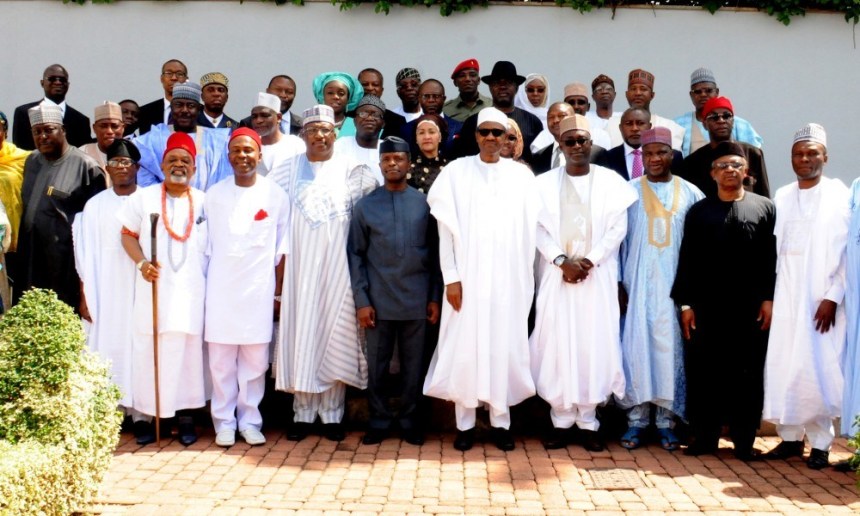By: Promise Oshewa
Months after he won his second term and weeks after his swearing in, Nigerians are still waiting for President Muhammadu Buhari is yet to name his cabinet.
From all indications, Mr President is not going to hit the ground running and all Nigerians want now is if the cabinet is eventually named, they will be first-rate Nigerians.
The former cabinet members have played their part in the last administration and we have gone to town to find out which of these Ministers they do not want to return.
While some where described as inconspicuous, others had strong name recognition but failed in terms of the assignments given.
It shocked many that some of these Ministers were not shown the door in the last four years.
The power to appoint a minister no doubt is constitutionally vested in Mr. President and the crucial responsibilities of a minister are also well stipulated in Section 148 of the 1999 Constitution but what Nigerians are saying is that he must choose the right team to help take Nigeria to the next level.
Here is a list of Ministers who from our findings performed below par and Nigerians would not want them back.
Minister of Defence -Mansur Dan-Ali
A retired General, Mansur Dan-Ali in his heart of hearts knows that he has not been outstanding as the Minister of Defence l.
If there was one thing that many Nigerians believed the Buhari government will do, it was that Nigeria will be very secure.
Unfortunately this has not been the case as there has been lapses in almost all par5s parts of the country.
If it is not Herdsmen clashing with farmers, it is bandits raiding villages or kidnappers taling over major highways like Kaduna-Abuja, Ife-Ibadan and so on.
Even the Boko Haram that the government has done a great job of dealing with are still spreading sorrow, tears and blood with their terrorist
The Attorney-General of the Federation and Minister of Justice -Abubakar Malami
The Attorney-General of the Federation and Minister of Justice should not be returned to office. He has been held responsible for the cases of disobedience of court orders by the government especially in the case of Sheikh El Zaky Zakky and Col Sambo Dasuki (Rtd).
He has also been lambasted for holding on to case files and even stopping some cases which has not gone down with many.
Adebayo Shittu (Minister for Communication)
Mr Adebayo Shittu his controversies apart has not performed in his role as Minister well.
Right from his Ministerial screening at the floor of the Senate, it was obvious that he was not going to shine.
Shittu was at sea during the MTN fine saga and hasn’t articulated a single policy to improve the sector.
Solomon Dalung (Minister of Youth and Sports)
This beret-loving Minister got one of the lowest scores in our survey.
He promised grassroots development and failed, he was busy fighting the sports associations and even became a Minister of Football with his attempt to oust NFF President Amaju Pinnick
Mr Dalung’s tenure will be remebered for bringing the country to shame with the issue of the $135,000 over payment that he refused to return giving outlandish excuses.
Proper organisation and policy formulation weren’t his thing.
Usani Usani Uguru (Minister of Niger Delta)
He’s in pole position to win the most anonymous Minister award alongside several others in Buhari’s team. Sometimes, you wonder if Usani understands the demands of his office.
Instead of facing his work which is so enormous considering the development challenges of the Niger Delta Region, he was busy playing local politics in his home state of Cross River.
His meddlesome attitude was so bad that he was suspended by the ruling APC.
Abdulrahman Dambazau (Minister of Interior):
Like his counterpart in Defence, he has not performed well despite being a former General. The security situation has been his greatest albatross and it seems he has run out of ideas.
He is one of those Ministers that needed to lose weight, apologies to Mr President
Udoma Udo Udoma (Minister of Budget and National Planning):
Despite his sterling resume, Senator Udoma Udo Udoma seems to have punched above his weight with this portfolio.
There’s a feeling that Udoma was at fault for the mess that the 2016 budget became—the mangled numbers and the padding happened on his watch. In saner climes, he should have tendered his resignation after the budget fiasco.
He has not changed the budgeting process in four years and there is a thinking that he should have been given a different role in the cabinet
Mohammed Bello (FCT Minister):
Muhammed Musa Bello is only visible on the tarmac of the Nnamdi Azikiwe International Airport, Abuja,each time the President is on his way in or out of the country.
FCT residents still remember Nasir El-Rufai’sdays as Minister of the capital city with nostalgia—an indication that Bello has been a ghost Minister.
Around Abuja, no one has really felt his impact and they would wish that he steps aside
Chief Audu Ogbe
Chief Audu Ogbe if you compare him to his predecessor, Dr Akinwunmi Adesina has not done us any good.
His acclaimed revolution in agriculture has only been in the books not in reality. The elder statesman has not increased the exports of our products as he promised and even the Yam export is hindered by an Export Prohibitive Act that he should have worked with the National Assembly with to abolish.
Mallam Adamu Adamu
Mallam Adamu Adamu, the Education Minister is one of the ministers who may likely be retained in the cabinet but Nigerians are begging Mr President to resist temptation.
The Bauchi State born politician was a columnist before he joined the cabinet and has been a close associate of the President right from the Petroleum Task Fund, PTF but has failed woefully as a minster.
The public secondary and tertiary institutions have not improved under his watch. He has added nothing to the Ministry in terms of innovation.
Dr. Ogbonnaya Onu
Dr. Onu who is the current Minister of Science and Technology who has not done well.
By now with the right direction, we should be on the way to competing with the rest of the world but this Minister seem to just be marking time
Hadi Sarika
Hadi Sirika is the Minister of State for Aviation. He has received commendations for some remarkable achievements but the state of the flagship airport, Murtala Muhammed International Airport has dented his CV big time.
If he cannot upgrade the MMIA in four years he has no business in the ministry, one angry passenger told us.
DR Chris Ngige, Minister of Labour
The Minister of Labour, Dr Chris Ngige has been one of those good men who have fallen flat. Under him, there has been too many spats with labour unions and if not for the election would have had the longest labour shutdown in recent memory.
Dr Isaac Adewole
Minister of health is one of those Ministers who has failed to live up to expectations.Just a walk to the Lagos University Teaching Hospital is enough to send him packing.
He has not done anything significant despite being a stakeholder.
Hon. Heineken Loikpobiri: Minister of State, Agriculture
Like the other ministers of State, he was just there without any achievement or ideas to affect the sector.

 News6 years ago
News6 years ago
 Featured6 years ago
Featured6 years ago
 Boss Picks6 years ago
Boss Picks6 years ago
 Headline6 years ago
Headline6 years ago
 Headline6 years ago
Headline6 years ago
 Headline5 years ago
Headline5 years ago
 Headline6 years ago
Headline6 years ago
 Headline6 years ago
Headline6 years ago














